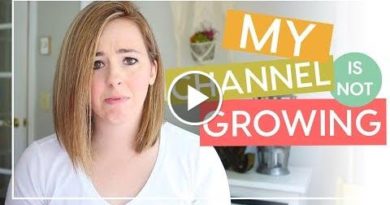How To Get The Most Out Of Google Analytics – Module 06 – Lesson 1 – SEO Unlocked
This is another day of SEO Unlocked. And this week, we’re going to be going over mastering Google tools. But before we get started, I want to start off with a quote, it’s from Oscar Wilde, “Experiences is simply the name we give our mistakes.” And by going over Google’s tools that they provide you, you’ll be able to find errors and mistakes within your website.
RESOURCES & LINKS:
____________________________________________
Download the assets mentioned in this video: https://neilpatel.com/training/
SEO Unlocked Course Playlist: https://www.youtube.com/watch?v=Q_lySNxCag0&list=PLJR61fXkAx11Oi6EpqJ9Es4rVOIZhwlSG
Ubersuggest: https://neilpatel.com/ubersuggest/
Google Analytics: https://analytics.google.com/analytics/web/
Google Search Console: https://search.google.com/search-console/about
____________________________________________
So that way, you can get results faster. But, I want to go over a few household things before we dive in. First off, have you really done enough over the past five weeks? So what I want you to focus on now is tracking your business goals.
So now let’s focus on some of the tools that Google offers to help you measure and improve your results. There’s Google Search Console and Google Analytics. And we have three main lessons for you.
One of them is on Search Console and two are on Google Analytics. But this one is going to be focusing on Google Analytics. And then we’ll dive into Search Console. And then we’ll go back to Analytics. Time is money when it comes to SEO. You know it takes a while to see results.
So the first step in Google Analytics is going over, you guessed it, goals. A goal could be anything, someone purchasing from your website, someone becoming a lead. You want to measure anything that helps you generate revenue.
And then pick the template that most resembles you. A reservation could be a lead, or you can end up picking someone generating a sale or someone contacting you. There’s so many different options here and they provide the templates.
The easiest one is usually lets say, a destination like driving them to a thank you page.
And then on the next step, where it says equals to, you put your URL of your thank you page. So every time someone hits that, they know that hey, you have a conversion. You’ll also want to make sure once you create your goals that you turn them on.
The next thing I want you to do is track your internal search queries. Remember how a lot of people use Google to do searches. Well, the chances are you have a search bar on your website. And you want to track what people are searching for on your website, because we’ll give you ideas of content to create, what you need to optimize to generate more sales as well.
So go back to Admin, and this time, I want you to click on Settings. And when you click on Settings, you’ll be able to scroll all the way down, I want you to turn on Site Search Tracking. And by turning it on, and you’ll see another screen just make sure you turn them all on.
Now, you know you should probably offer it. Or if you’re a lead generation provider, and people are searching for some educational based content, and you don’t have it, you should create it, and then try to collect leads from that page.
You also want to create your own dashboard. By creating your own dashboard, you can see the metrics that are the most important to you. So in Google Analytics, go under Customization, and of course click on Dashboards, then click on Create. And then you want to create your own dashboard by coming up with the name, I like selecting Blank Canvas and then you can select the metrics that are most useful to you. Whether it’s goals or people bending your funnel or exiting, you can pick all the ones that are related to driving revenue.
And the key there is, ones that are related to driving revenue. I wouldn’t create a dashboard with a ton of vanity metrics. vanity metrics are metrics that don’t move the needle, don’t make you money. So make your dashboard with the metrics that drive conversions.
Now, last but not least, when we talk about Google Analytics, I want you to create alerts. Alerts notify you when something is happening that’s good or bad. Remember, we are busy, you’re busy. You don’t have all the time in the world to log into Google Analytics every hour.
Heck, you may not even log in every day. So by creating alerts, you can track spikes in traffic or drops or plateaus or goals going up or down or revenue going down or bounce rates going up. You can track whatever you want when it comes to your alerts.
► If you need help growing your business check out my ad agency Neil Patel Digital @ https://neilpateldigital.com/
►Subscribe: https://goo.gl/ScRTwc to learn more secret SEO tips.
►Find me on Facebook: https://www.facebook.com/neilkpatel/
►On Instagram: https://instagram.com/neilpatel/
#SEO #NeilPatel #DigitalMarketing





